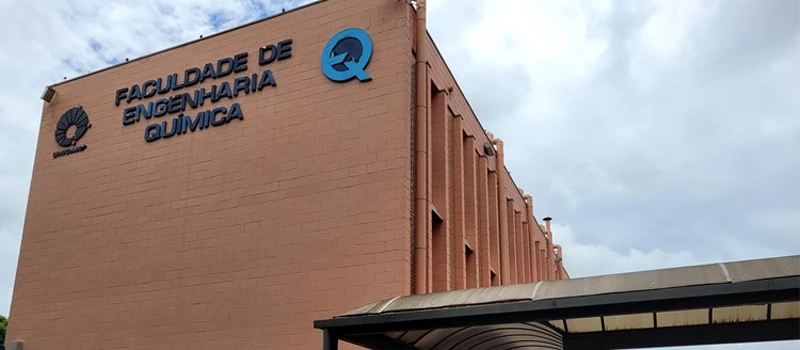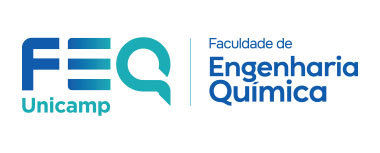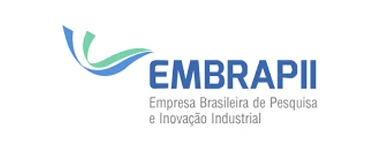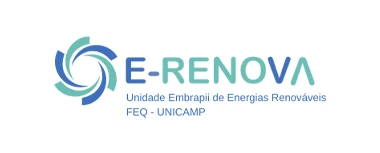THE FACULTY OF CHEMICAL ENGINEERING AT UNICAMP WILL WORK ON THE DEVELOPMENT OF NEW TECHNOLOGIES IN THE FIELD OF RENEWABLE ENERGIES FOR SUSTAINABLE DEVELOPMENT.
Text: Ana Paula Palazi | Photo: Divulgação FEQ-Unicamp
The Faculty of Chemical Engineering at the State University of Campinas (FEQ-Unicamp) has been approved for accreditation as a unit of the Brazilian Company for Industrial Research and Innovation (EMBRAPII), a social organization linked to the Ministry of Science, Technology, and Innovations of the Federal Government. The final result of the process was announced this Friday (20) on EMBRAPII’s website.
FEQ-Unicamp is among the four institutions in São Paulo that were approved, alongside the University of São Paulo and Embrapa Instrumentation, in the call that took place in October 2022 and had partial results announced at the end of last year. The other selected research centers are the Federal University of Pernambuco (FITPEG) and Senai DR in Recife (PE), the State University of Paraíba (NUTES) in Campina Grande (PB), Senai DR in Maringá (PR), and the Foundation for Technological Innovations (FITec) in Belo Horizonte (MG).
The EMBRAPII unit in renewable energies is named E-RENOVA and will be led by professor Rubens Maciel Filho, a faculty member and full professor at FEQ-Unicamp. The new center of competence will involve a team of faculty, staff, researchers, and students from the Faculty with different areas of expertise, as well as the Unicamp Development Foundation (Funcamp) and the Unicamp Innovation Agency (Inova Unicamp).
“Being approved as an EMBRAPII unit is an achievement and another recognition for FEQ-Unicamp. We are already a reference in the field of renewable energies and products, and now we expand our commitment to society in developing technologically-based solutions that meet sustainability criteria through partnerships with the industrial sector,” said Rubens Maciel Filho, professor at Unicamp and coordinator of the new EMBRAPII unit.
CENTER OF COMPETENCE
The research conducted at E-RENOVA will focus on new processes and products in renewable energies, biofuel production, and biomass processing using agro-industrial waste, including those from sugarcane, corn, and forestry, generated by the paper and pulp industry, for example. This is the second EMBRAPII unit hosted at Unicamp – the other one is linked to the Center for Medicinal Chemistry at Unicamp (CQMED), operating in the field of drug innovation since 2017.
According to Leonardo Fregolente, associate director of FEQ-Unicamp, this accreditation will boost resource acquisition and enhance Unicamp’s ability to collaborate with companies in the sector on experimental research as well as modeling and simulation.
“The accreditation of FEQ will certainly foster an ecosystem of innovation and technology development, and this synergy will contribute to advancements in technical and economic maturity of industrial processes, generation of intellectual property, specialized human resources training, as well as the consolidation of new research areas,” said the professor and researcher.
Following the accreditation, the EMBRAPII unit at the Faculty of Chemical Engineering at Unicamp will be eligible to receive financial resources from the Ministry of Science, Technology, and Innovations (MCTI) to prospect and execute Research, Development, and Innovation (RDI) projects in partnership with industrial companies, focusing on sustainable development.
The investment for E-RENOVA will be non-reimbursable, and the expectation is to at least double the innovation funding. The model combines financial contributions from industrial companies and non-financial resources from the accredited units. At Unicamp, the allocated resources will include physical infrastructure, equipment park, researchers’ salaries, and research stimulus scholarships.
“We will provide full support to researchers in their interaction with the industry. We are already in talks with established companies to structure long-term relationships focused on collaborative research and also fostering the creation of spin-off companies based on the technologies developed at E-RENOVA,” commented Iara Ferreira, Coordinator of Business and Innovation at Inova Unicamp.
The target market for the projects primarily consists of companies in the sugarcane-corn-energy, industrial biotechnology, forestry, oil and gas, and renewable energy sectors. Companies such as Raízen, Suzano, Evonik, Braskem, and Amyris have already expressed their intention to establish cooperation agreements for research with the new EMBRAPII unit at Unicamp.
“Brazil has great potential for biomass utilization in the production of fuels, especially high-energy-density fuels. Our goal is to strengthen the existing university-industry partnerships with Unicamp and attract new partners, transforming FEQ into a national technological development hub for biofuels,” concluded Fregolente.
GET TO KNOW FEQ-UNICAMP A LITTLE BETTER IN THE VIDEO BELOW:







